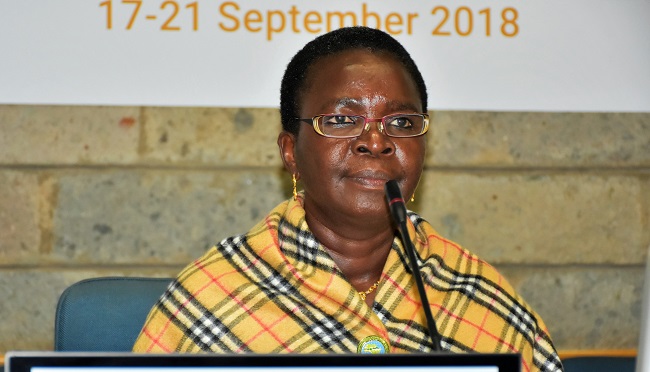The UN Environment Programme (UNEP) on Saturday, November 9, 2019 urged African governments to invest in environmental science to ensure environmental sustainability and prosperity.

Juliette Biao, Regional Director, UNEP Office for Africa, said that investment in research and develop structures to translate its findings into action is required given Africa’s vulnerability to climate change.
“The continent need to use science and data to spur actions that seek to protect people from the harsh impacts of climate change and ensure their economies are resilient enough to grow on a sustainable path,” Biao told a regional multi-stakeholder’s consultation meeting for Africa in preparation for African Ministerial Conference on the Environment (AMCEN) in Durban, South Africa.
In a speech that was read by Mohamed Atani, head of communication and outreach, UN Environment Africa, Biao noted that Africa’s biodiversity is the foundation of its economic and social transformation.
Biao noted that civil society organisations (CSOs) have an important role to play in communicating environment science and building public support around critical environmental challenges and public policy.
She said that the continent’s natural resources that are the continent’s assets are unfortunately under tremendous threat hence calling for urgent action from all sectors.
“Africa is endowed with a vast network of aquatic resources and an extensive connected ocean, rivers and lakes and investing in blue ocean economy opens doors for Africa’s prosperity and growth,” he added.
“CSOs must develop mechanisms to support engagement of local communities towards developing the biodiversity economy with people-centered approach that ensures resources sustainability,” she added.
She said that circular economy offers significant opportunities for Africa to achieve inclusive economic growth, including creating descent and sustainable jobs.
The UN official called for enactment of necessary policies to confront waste management through engagement of different sectors.
For these policies to be attractive, Biao observed that communities need to see from us practical actions which assure tangible benefits to them.
“You civil society groups must keep pressure on countries to assume their historic responsibility and capability to increase their Nationally Determined Contributions (NDCs) ambitions and adapt to climate change,” she said.
AMCEN promotes regional cooperation in addressing environmental challenges facing the African region and identifying opportunities that can support its sustainable development.
It also provides a stage to not only influence world environment policy through United Nations Environment Assembly (UNEA) but also to engage with others working in different regions across the globe.
The 17th AMCEN conference is coming soon after the UN Secretary General called for climate action by governments, the private sector and civil society during the Sept. 2019 conference on climate change in New York.
By Duncan Mboyah
